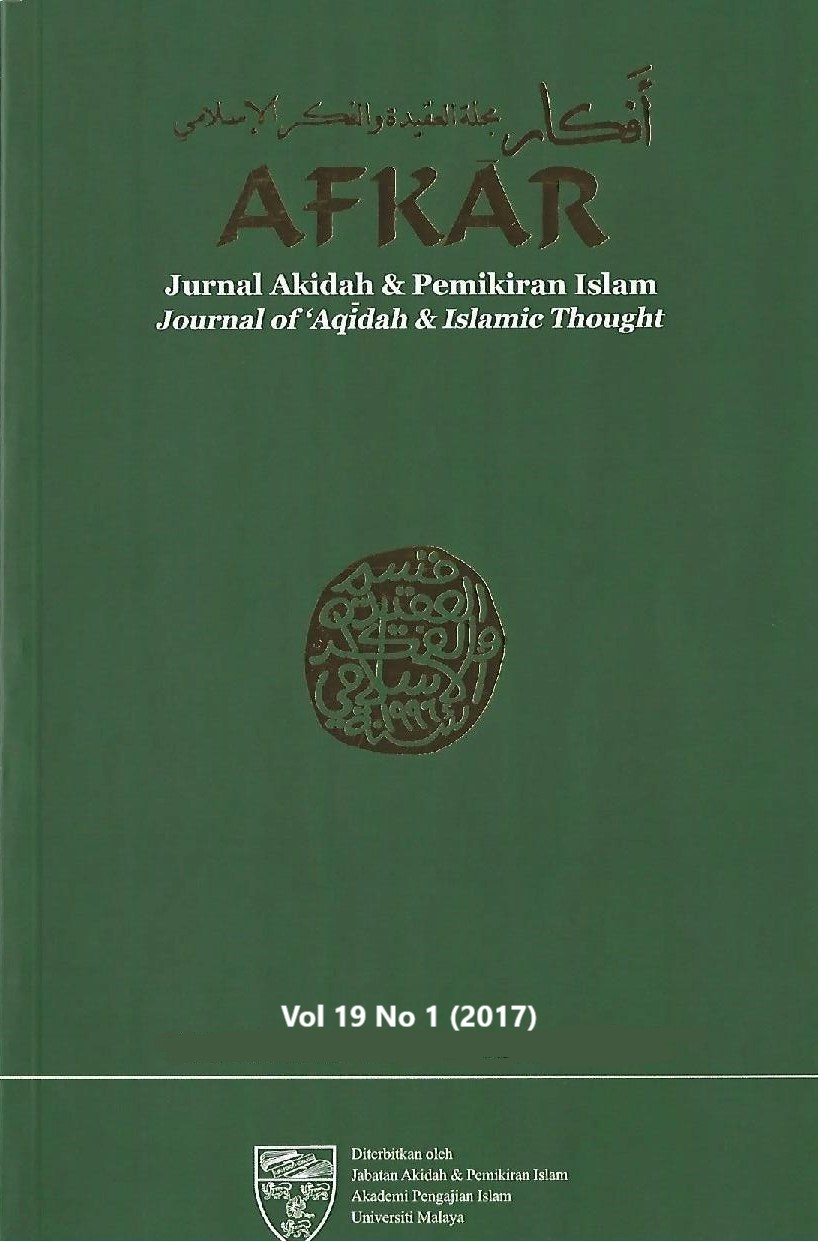تنزيه الله تعالى عند الزّمخشريّ والنّسفيّ: دراسة مقارنة
Transcendence of Allah According To Al-Zamakhshari and Al-Nasafi: A Comparative Study
DOI:
https://doi.org/10.22452/afkar.vol19no1.6Abstract
The basis of discussion on the transcendence (tanzih) of Allah is the assertion of His complete perfection and the rejection of anthropomorphism (tashbih). Allah has denied the likeness of everything with Himself as mentioned in surah al-Shura verse 11. Therefore, no one or something resembles or equals Him and He is no way like anything created. One of the attributes of God, salbiyyah also indicates tanzih which means rejecting and denying any deficiencies with Allah. It establishes some of the attributes of God relating to the concept of tanzih which are eternity (qidam), everlastingness (baqa’), oneness (wahdaniyyah) and non-resemblance to the creation (mukhalafah li al-hawadith). All of these attributes deny the anthropomorphic depictions of Allah. This paper discusses the concept of tanzih according to al-Zamakhsyari and al-Nasafi. The study concludes that there is no disagreement between these two figures with regard to the concept of tanzih except on the basis of its conceptual aspects. Al-Zamakhsyari as an example transcend the attributes of Allah the Almighty based on His eternity. If there is a likeness of something with Allah then the eternity will be multiplied and this denies the principle of Tawhid. However, al-Nasafi sets forth the eternal attributes to the essences of Allah. For him, the attributes of eternity do not lead to the multiplicity of gods because the multitude of attributes are standing on the essence and it does not affect the oneness of Allah.









